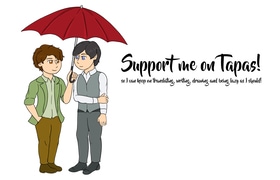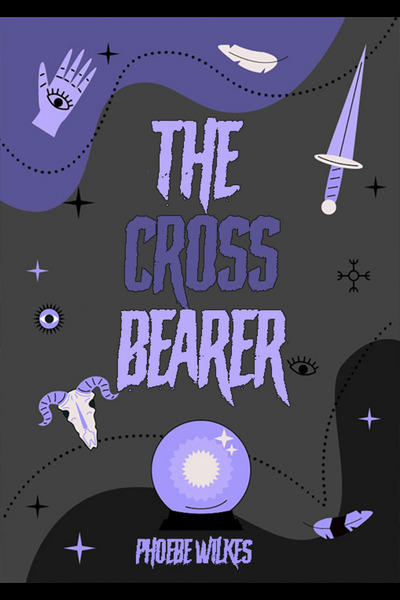Just a couple of months ago I had left the academy, being already an active member of the Civil Guard, and decided to accept the transfer to a police station located in the same town that welcomed me during so many summers of my childhood and subsequent adolescence.
This was a job I didn't dislike, but I wasn't particularly excited either: I had chosen it because it was the right thing to do, what my father wanted for me. And while I would have much preferred to sit behind a desk and spend the day filling out account reports in complete solitude, I wouldn't dare to say that going ahead with my training was a mistake either. At the end of the day, I liked to be outside, patrolling the streets. And, in any case, I didn't think that anything violent or out of the ordinary would happen in such a remote town.
How could I have guessed that, shortly after beginning to adjust to my new position, we would be sent to oversee the recovery of a deceased under such unfortunate circumstances?
Certainly that was not the same thing as suicide or murder. It wouldn't cause the same fuss, and it wouldn't force us to do an exhaustive investigation to the point of having to involve half the community in our investigations, but it was still a hassle. Tragedies like these always destabilized the routine and, although I considered myself to have the necessary knowledge to handle myself, I did not have the experience.
This whole situation was intimidating to me and the worst part had not even started.
"Last night it was drizzling," Freire commented, as soon as we stopped, "so between that and the poor vision, we think Herrero may have tripped over here."
There were no stones on the path, but the ground was still wet and a clear trace could be seen on it, as if something or someone of considerable size had slipped down the slope, destroying all the plants in its path. At the end of the trail, and giving truth to the logic demonstrated by those who found it, a corpse remained prostrate next to some rocks, which must have prevented it from continuing to roll down to the river.
It couldn't be analyzed very well from where we were, but it was indisputable that Herrero was dead. The position in which he was found left no room for doubt and, as if this were not enough, even with the fog and the little light that was able to filter through it, we could still see the blood that at some point came out of his skull open and now accumulated in a puddle, around his inert body.
Dr. Ballejo was the first to react, carefully approaching where the deceased lay.
Although the setting was imposing, it could not be considered that it was a ravine, at most a slope that was too steep. If you stepped carefully, you weren't in the slightest danger. So it was not surprising that neither Ballejo nor the rest of us needed help to catch up with Herrero. Even I, with my usual clumsiness, was able to walk the scant ten meters that separated us from the deceased with hardly any need to grab onto any log for support.
"He split his head open with these rocks, most likely it was an immediate death," Ballejo told us, having squatted down next to the corpse, he proceeded to carry out a very brief preliminary examination. “His right foot is twisted, a possible sprain. It's too early to tell, but the theory that he tripped on the road, lost his balance, and then plunged down the hill makes sense.”
“It's also bad luck that it ended up on the only boulders in the immediate vicinity. Had it not been so, and even if he could still hurt himself, this would have been a scare.”
And the lieutenant was right. Although these mountains were quite rocky, it was not so common to find outcroppings of this type in the middle of the vineyards. Most of the embankments were made up of earth and, in the event that someone fell, it would be more normal for them to end up on one of the adjoining paths or even for some tree or bush to cushion the blow a little.
"Can you tell when he died?"
“It´s difficult to say, this climate can affect rigor mortis. But judging by how he is now, I'd hazard a guess that it's been at least four hours since he died.”
"Close night, then," Taboada concluded, confirming our first suppositions, and turning to Freire, he asked. “Have you touched anything?”
"No, as soon as we saw it we rushed to send someone to the village to report" he replied, sounding sincere. “Regarding those of us who stayed here, we stopped the work on this land and we stayed to wait for help to come. We did not touch anything nor did we see anyone approaching.”
“I see.”
He didn't seem convinced.
"Is there a problem, Lieutenant?"
“No, I was just wondering, if we establish that Herrero died during the early hours of the morning, how is it that he didn't have a lantern with him for guidance? But the doctor's right, it's early to guess.” Addressing me for the first time since we arrived at Riverside, he motioned. “Corporal, can you go back to the main road and ask Garaza and company if they can come down with the stretcher? I think it's time to lift the body, if there´s no problem.”
Ballejo gave his approval, so there wasn't much more to say. I simply nodded and inquired, before heading up the hill again, if they needed me to do anything else.
“Just one more thing, Eloy. Then a full report will have to be filled out for headquarters, regarding this matter and, since we don't have the equipment, I hope you memorize this scene well so that it can be recorded later in the documents.”
"It won't be a problem, I have a good memory."
I said that, but there really was a problem. It had nothing to do with my memory, it's just that that scene seemed disgusting to me, although I did my best not to let it show on my face.
The victim of our particular accident was lying on his stomach, with one of his legs twisted and his head tilted. It was not easy to tell if his neck was broken or not, but when seen up close it was indisputable that it was those rocks that had fractured his skull to a depth that made it possible, from a certain angle, to glimpse the opening perfectly and part of his brain.
The blood that once oozed from his body was already starting to dry up. The rocks had been stained and around Herrero's head there was still a large puddle that, at some point close to the moment of the blow, had overflowed and dropped several threads of the red liquid down the mountain, in the direction of the river, which now were lost in the vegetation.
Although the disposition of our victim was already grotesque in itself, what struck me the most was not the violence shown by the body, but the expression on his face: Herrero still had his eyes open, completely out of focus. With his mouth twisted, he wore a sneer that could only be described as pure terror. As if, just before exhaling his last breath, he had met death itself.
No, the report Taboada was talking about would have to be written the same way. That was clear. The only thing I regretted was that we did not have a camera with which to take a couple of photos of Herrero and, later, be guided by that to make a brief description of the find.
Without proper equipment, I would have to record every torturous detail and play it back on my typewriter as densely and explicitly as possible. I hated it, and although I didn't complain either, at that moment I assumed that I would have a hard time sleeping that night.
"Also," the lieutenant went on, completely oblivious to my mundane concerns, "when you get back I need you to do a thorough search of this estate. We may have missed something and, if so, now is the time to find it.”
I had a bad feeling, so I ventured to say:
"The lantern?"
"You can ask some of the Navia workers to help you," he answered, evading my question entirely, and also assuming that this task would take me a long time given the amount of forest to cover.
That was great. In addition to having to memorize a face that would give me nightmares for nights to come, I now also had to be stranded in the fog to search for a lantern I wasn't even sure existed.











![Chapter 1 [Part 2]](https://us-a.tapas.io/sa/29/7230e9e0-44c6-4143-be14-7d3099719349.jpg)
Comments (0)
See all